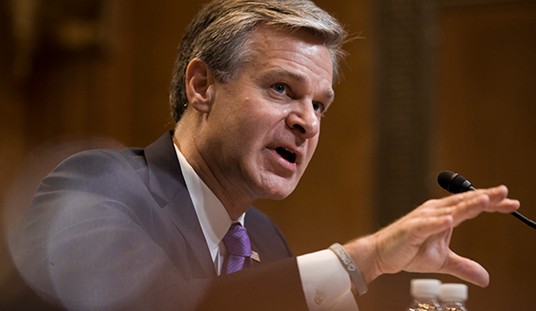“For the sake of the Syrian people, the time has come for President Assad to step aside,” Barack Obama said in a written statement in August, 2011. The statement came following reports that indicated Syria’s Bashar al-Assad was involved in a bloody crackdown on protesters who rose up amid the Arab Spring revolutions.
Two years later, Obama was marshalling support for air strikes against forces loyal to Assad. Though the administration had ruled out “regime change” through military force, toppling Assad was the goal nevertheless. The United States was responding to the clear evidence that Damascus had used chemical weapons on civilian and rebel military targets alike repeatedly and even after the President of the United States had warned of dire consequences for doing so. Assad had to go.
But Obama did not act, and Syria’s dictator remained in place. Estimates suggest that over 200,000 have died in fighting in Syria, with millions of civilians displaced. Within a year of Obama’s 2013 address to the nation regarding the threat to global stability in Syria, Islamist militias had proliferated across Syria and Iraq. Today, these terrorist groups present a clear threat to the security of the United States.
On Monday night, American forces began strikes on Islamic State and Khorasan targets in Syria. When the United States and a variety of Arab nations acted against these terror groups, they did so with Assad’s consent.
Washington is understandably concerned about creating the impression that they are acting in Syria with Assad’s blessing.
US Official: We warned #Syria gov. not to engage US aircraft/did not request #Assad permission/did not coordinate our actions or give notice
— Joyce Karam (@Joyce_Karam) September 23, 2014
The State Department insisted that there were no military-to-military contacts between Syria and the U.S., and Assad’s forces were given no indication of the planned timing of last night’s airstrikes. But even Assad’s tacit acceptance of U.S. and Arab military action against targets inside his country necessarily represents some level of coordination.
Former acting CIA Directory Mike Morell observed that the United States provided Assad with advanced warning of the imminent strikes on Islamist targets in his country so that pro-Assad forces would not target coalition aircraft. That, Morell warned, might prompt a series of escalating of responses from coalition aircraft. It is worth noting, too, that Damascus remains a client of Moscow and there is every reason to believe that some of Assad’s Russian-made air defense systems are operated by Russian advisors. Strikes against pro-Assad targets may have resulted in Russian casualties.
What if Syrian forces had attacked U.S. and Arab aircraft? Would coalition forces have had the authority to respond? Morell is not so sure.
“I would bet,” Morell said, “that there was a long discussion at the White House about the legal basis for striking Syrian military units, and I bet you that legal basis was a little shaky and I bet that’s why we didn’t do it.”
Those sound like safe bets. The United States has said it will not work with Assad to punish the Islamist militants with whom his regime is also fighting. In fact, reports suggest that targets in Syria were carefully selected by military planners in Washington to ensure that the Assad regime would not be aided by their destruction.
That’s nonsense. Not only is the Assad regime going to benefit from the weakening of Damascus’s internal adversaries, the United States working alongside a coalition of Assad’s external adversaries is giving his regime a new infusion of legitimacy.
“First, we should recognize that the Obama administration has pulled an impressive coalition out of the hat,” The Telegraph’s Shashank Joshi observed accurately.
Bahrain, Jordan, Qatar, Saudi Arabia and the United Arab Emirates are all reported to have taken part in the strikes. The absence of Nato-ally and regional heavyweight Turkey is extremely disappointing, though it is entirely possible that Ankara will join in after PM Erdogan meets with Obama at the UN General Assembly this week.
Given that these Arab nations have all been, literally, violently opposed to the Iran-backed Assad regime and have long supported Syria’s rebels, their participation is symbolically crucial, particularly given that there is no UN Resolution to authorise this extension of the war across borders. Securing a prominent, high-level Arab role is a major diplomatic success, although the delay has likely come at some military cost.
Second, the US was fully aware that striking ISIL without striking the regime would potentially boost Assad – this is precisely what these Arab allies had been telling Washington, and it is why they had been so sceptical of air strikes in the first place.
While Assad is benefiting from the international community’s cooperation today, Joshi warns that this campaign – which is likely to last months or even years – will make Assad nervous and he might not be wholly cooperative for long. Last night, Israeli forces shot down a Syrian fighter jet overnight, the first such incident since the 1980s. It will require restraint on Assad’s part not to respond to these provocations if they continue.
The White House will go out of its way to avoid cultivating the impression that they are working alongside a murderous autocrat to degrade Islamist terror groups in Syria. The reality is that America is cooperating with Assad to strike groups believed to be the greater evil of the moment. These are the wages of indecision which Obama and the United States must pay.








Join the conversation as a VIP Member